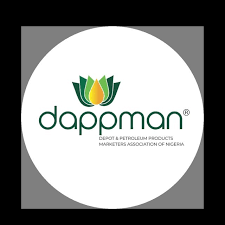The Oduduwa Progressive Economic Forum (OPEF) has come down hard on the Depot and Petroleum Products Marketers Association of Nigeria (DAPPMAN), accusing the group of acting as a mouthpiece for powerful fuel importation cartels who have crippled Nigeria’s refining industry for decades.
In a strongly worded statement issued on Sunday by its Executive Director, Dr. Rotimi Adeyanju, OPEF described DAPPMAN’s recent comments about the Dangote Refinery as “a desperate attempt to protect an empire built on fraud, monopoly, and national suffering.”
The forum criticised DAPPMAN for what it called a “well-packaged defence” of those who benefitted from years of fuel importation, round-tripping, and subsidy fraud, while state-owned refineries were deliberately allowed to collapse.
DAPPMAN’s Executive Secretary, Mr. Olufemi Adewole, had on Saturday warned Nigerians against promoting what he called “misleading narratives” suggesting that Dangote Refinery alone was responsible for the recent stability in fuel supply.
He claimed that Dangote currently supplies only 30 to 35 percent of the country’s fuel needs, while DAPPMAN members still provide the rest through imports.
But OPEF was quick to dismiss Adewole’s comments as “the voice of Jacob but the hand of Esau,” accusing DAPPMAN of dressing up cartel interests in the name of market fairness.
“For decades, these cabals controlled Nigeria’s energy like feudal lords,” Adeyanju said. “They destroyed our refineries, forced Nigeria into relying solely on imports, and looted the treasury through a subsidy regime that only benefitted a few.”
He added, “Now that the Dangote Refinery is breaking that stronghold, they are panicking. They see their rent-seeking empire crumbling and are doing everything to frustrate it.”
OPEF didn’t hold back in reminding Nigerians of DAPPMAN’s track record. The forum pointed out that the same marketers now claiming to protect fair market conditions were responsible for hoarding, smuggling, fuel scarcity, and the importation of substandard petrol in the past.
“Let them not insult our memory,” Adeyanju said. “We remember toxic fuel shipments, long queues at filling stations, and endless scarcity. That was the era they controlled. Nigerians suffered, and they profited.”
He argued that the so-called bulk fuel supply by DAPPMAN was never a public service, but rather a multi-billion-naira racket funded by taxpayers.
“For decades, Nigerians paid with their sweat and blood so a few marketers could get rich importing fuel under a fraudulent subsidy system. Dangote Refinery threatens that monopoly — that is why they are angry,” he said.
Responding to DAPPMAN’s claim that Dangote’s occasional price cuts for diesel were disrupting the market, OPEF made it clear that Nigerians, not marketers, are the ones who matter.
“If a refinery within the country reduces pump prices, that is a win for the people,” the forum said. “Only those who have grown fat on monopoly and shady deals would see cheaper fuel as a problem.”
The forum warned that efforts to paint Dangote Refinery in a negative light were nothing but a coordinated campaign to return Nigeria to an era of import dependence and subsidy scams.
OPEF called on President Bola Tinubu, government agencies, and security operatives to closely monitor what it described as “sponsored propaganda and cartel manoeuvres” aimed at undermining Nigeria’s only major private refinery.
“We must not allow them to destroy this opportunity for Nigeria to finally take charge of its own energy future,” Adeyanju said.
He urged regulators to create policies that protect domestic refining and discourage manipulation by entrenched interests in the downstream sector.
Nigeria, despite being Africa’s largest crude oil producer, has for decades relied on imported fuel due to the poor state of its four government-owned refineries. These facilities, located in Port Harcourt, Warri, and Kaduna, have been largely non-functional, yet billions of naira were spent on their maintenance and fuel subsidies.
This situation created room for a powerful group of fuel importers who reportedly made huge profits through round-tripping, subsidy scams, and the supply of low-quality products.
The completion of the Dangote Refinery — Africa’s largest with a projected capacity of 650,000 barrels per day — marked a major shift in the sector, offering hope for local refining and potentially lower prices.
But this also meant stiff competition for importers, many of whom now fear losing their grip on the lucrative downstream market.
Concluding its statement, OPEF urged Nigerians to remain vigilant and not be misled by those it described as enemies of progress.

